Interprofessional Collaboration for Advanced Breast Cancer Patients
VerifiedAdded on 2022/09/26
|11
|799
|27
Presentation
AI Summary
This presentation focuses on an interprofessional collaboration plan for managing patients with advanced breast cancer. The plan emphasizes a multidisciplinary team approach, highlighting the complexity of the disease and the need for coordinated care. The presentation addresses the patient issue, the relevance of an interdisciplinary approach, and the benefits of a multidisciplinary team, including improved survival rates and training opportunities. The objective is to improve patient survival and satisfaction through effective treatment and tumor control. The plan's implementation involves a team meeting weekly, resource optimization, and independent audits. Evaluation criteria include increased survival rates and patient satisfaction. The presentation also covers resource management, including prioritizing patients, palliative care, and accountability. The presentation includes multiple references to support the ideas and plans discussed. This presentation aims to generate interest and buy-in for the plan proposal, offering a comprehensive overview of the issue, proposed solutions, and evaluation metrics.
1 out of 11

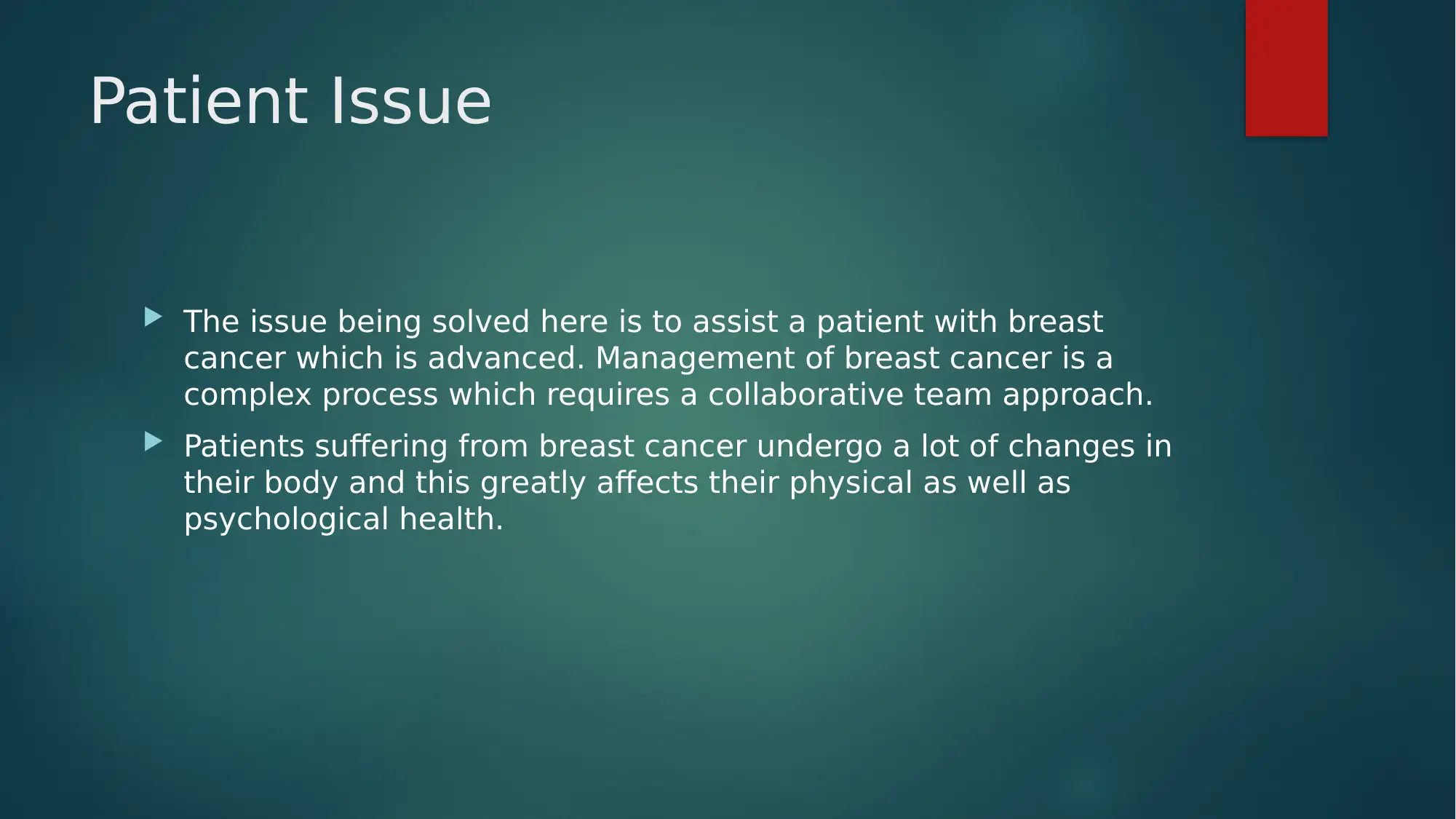
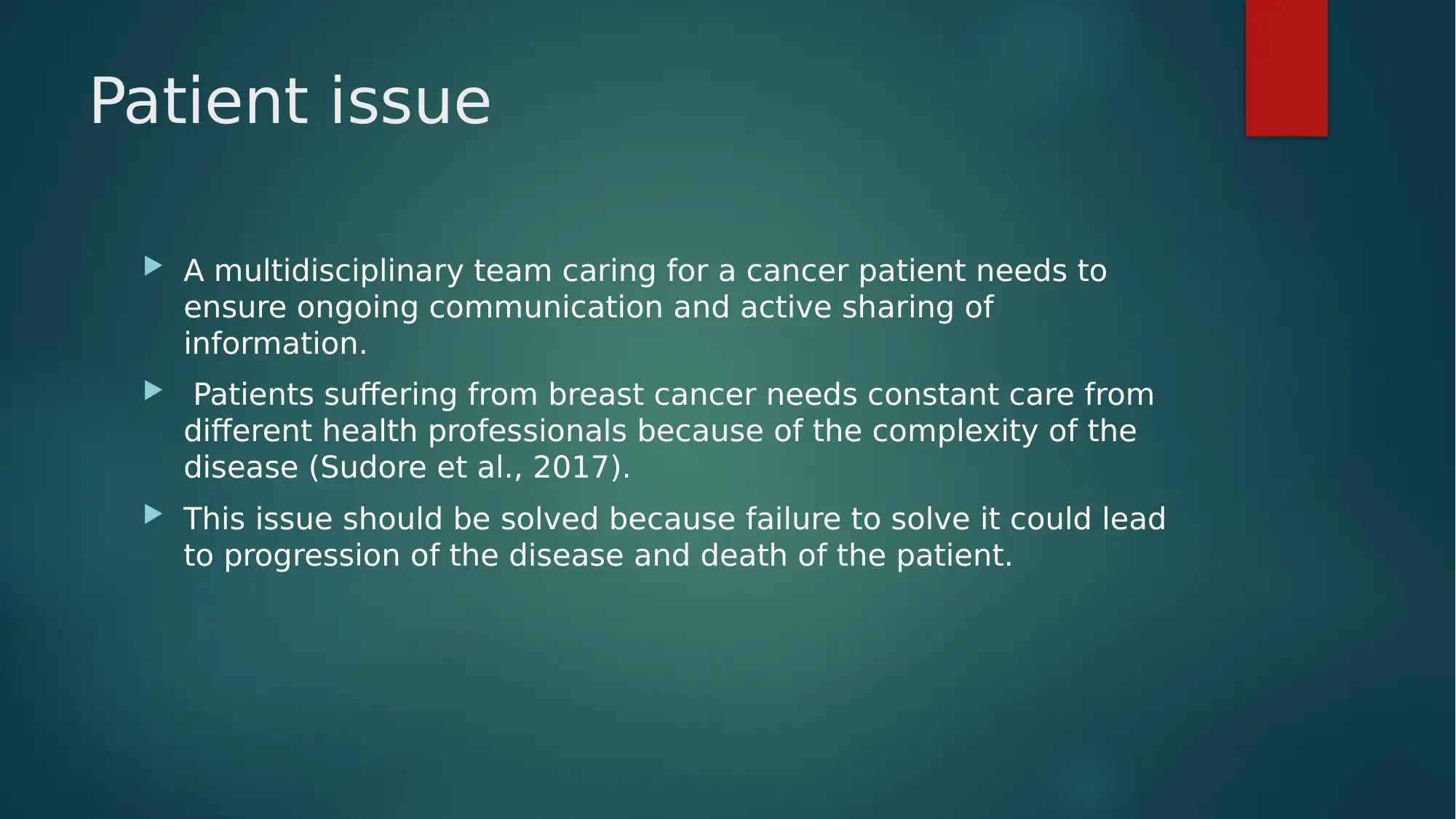

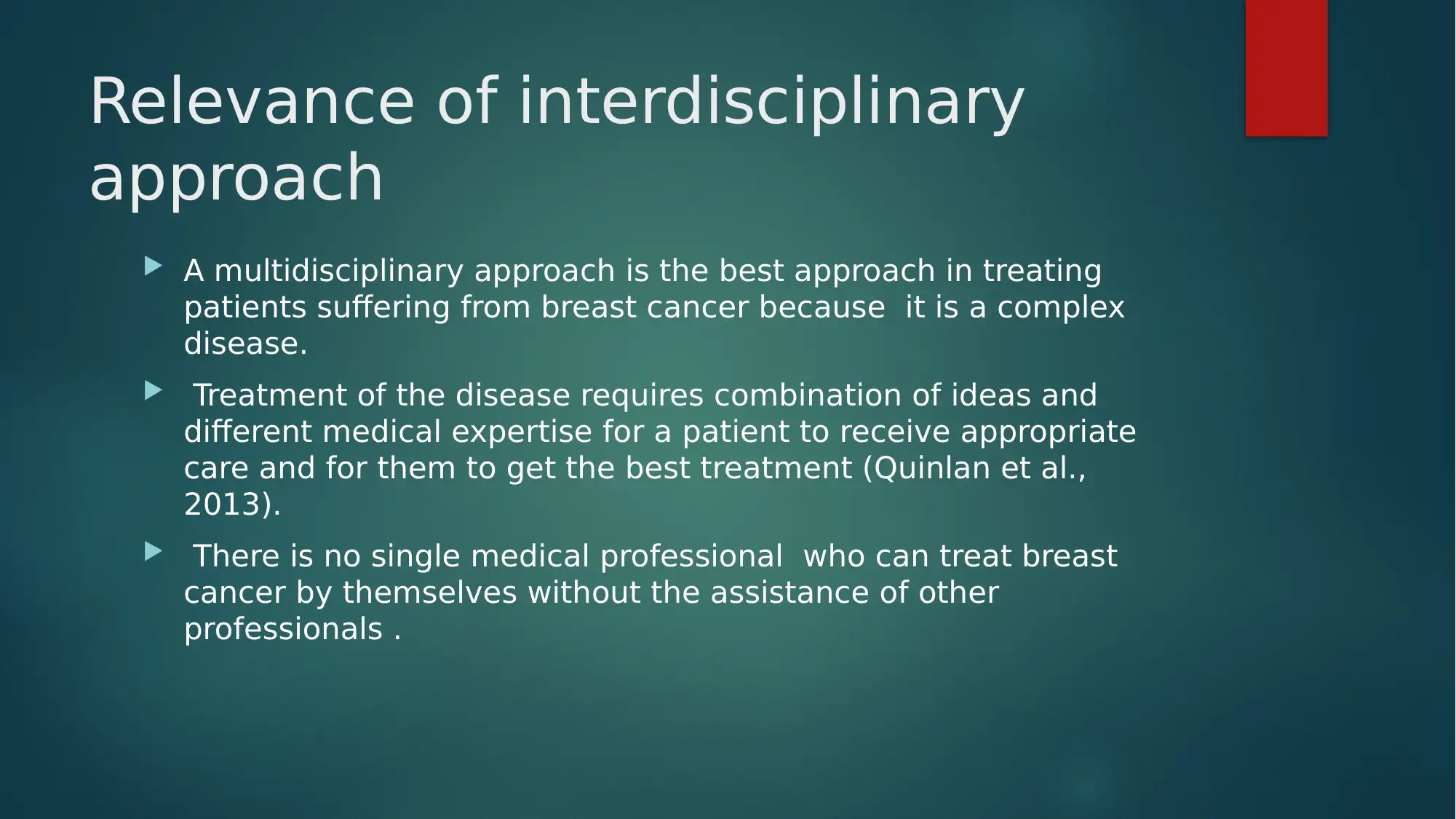
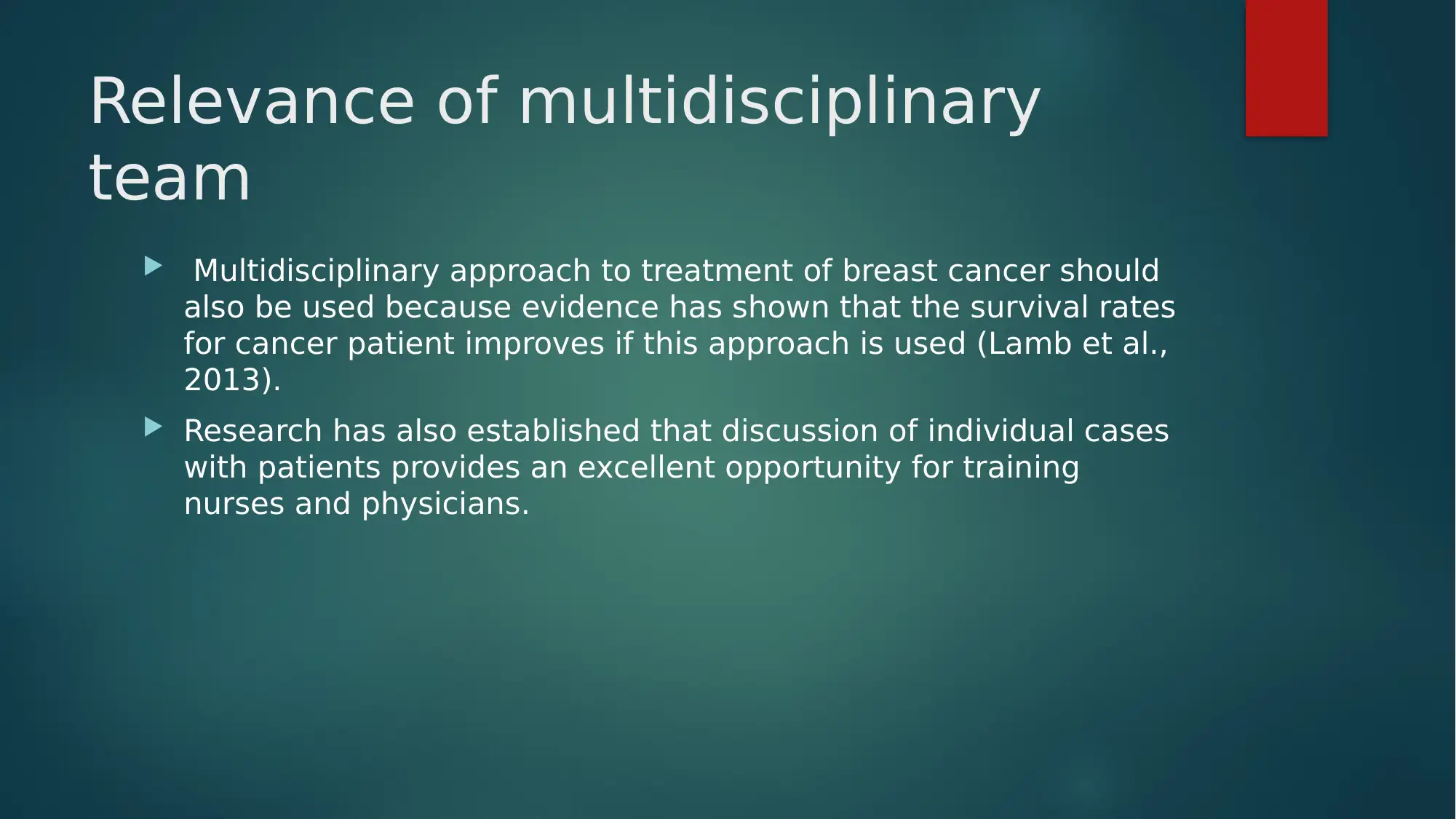
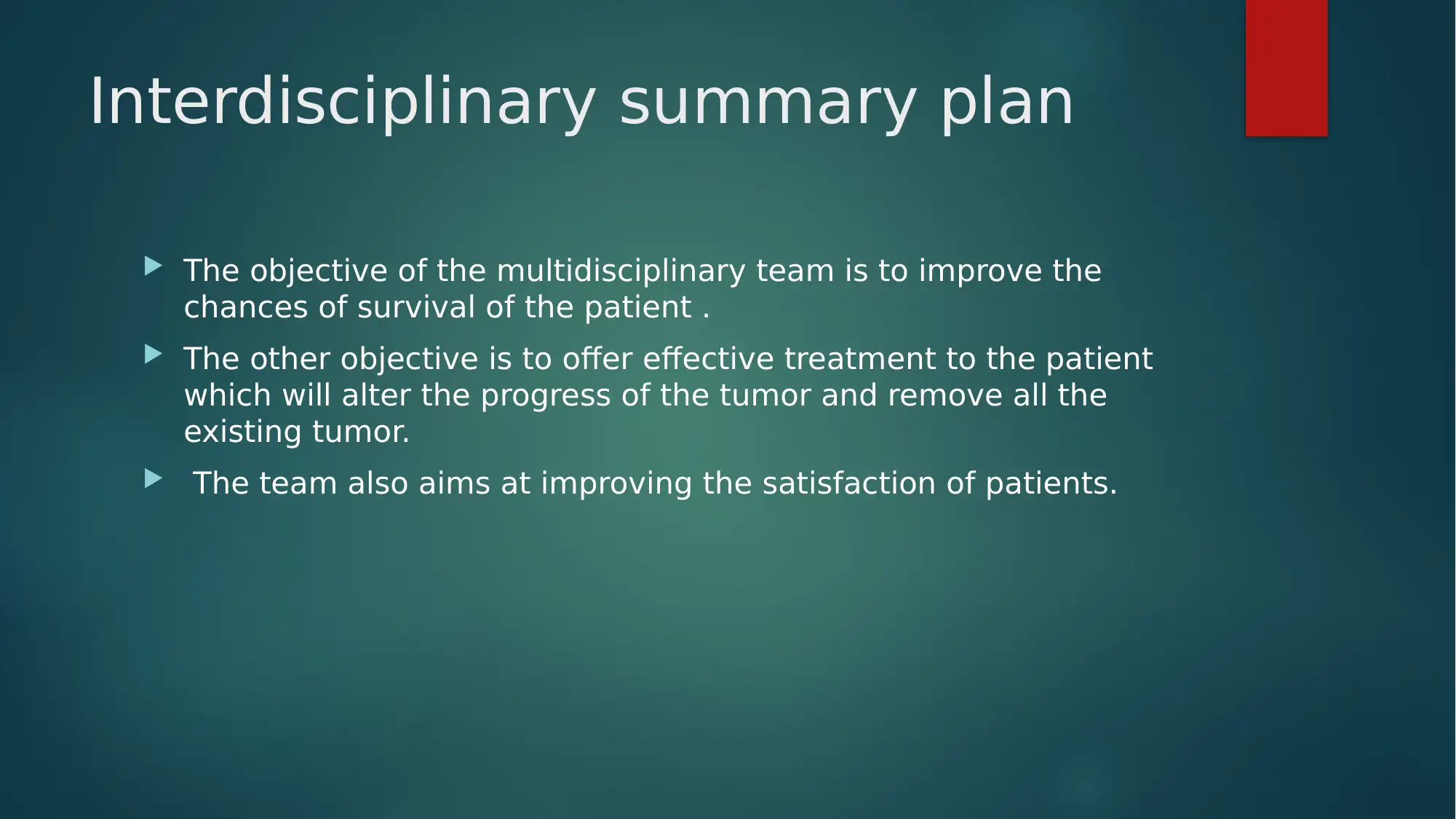
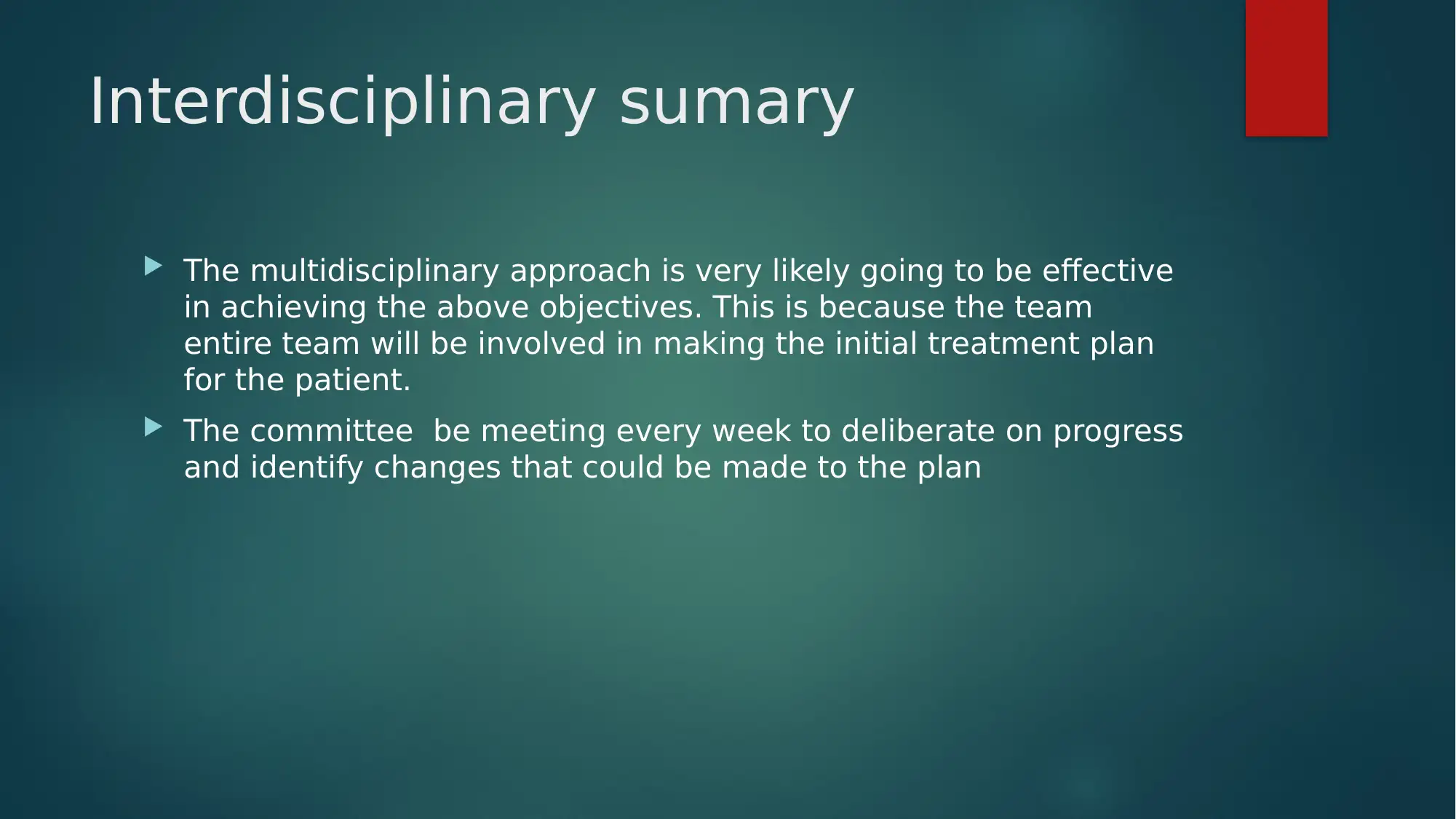
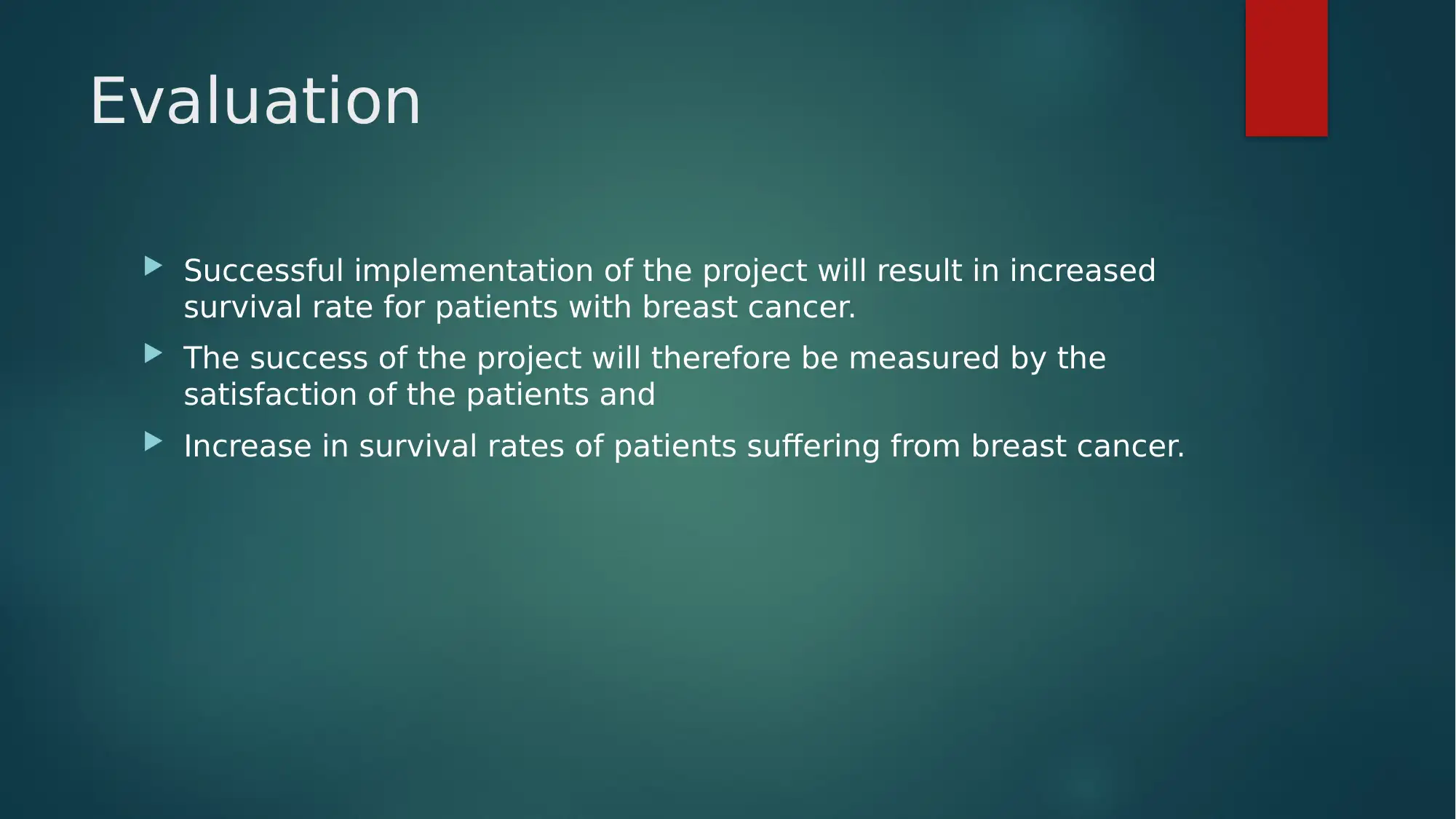

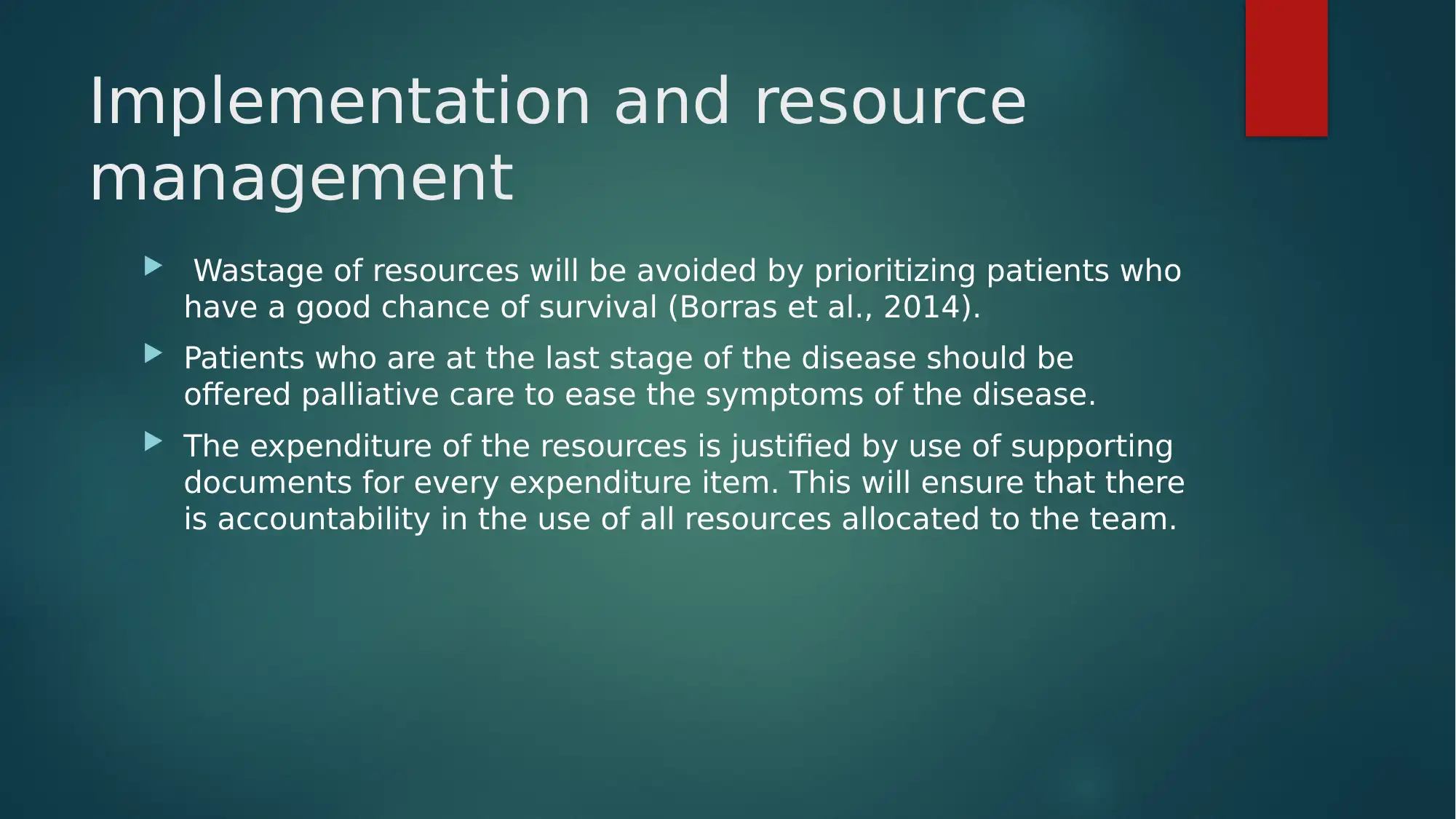
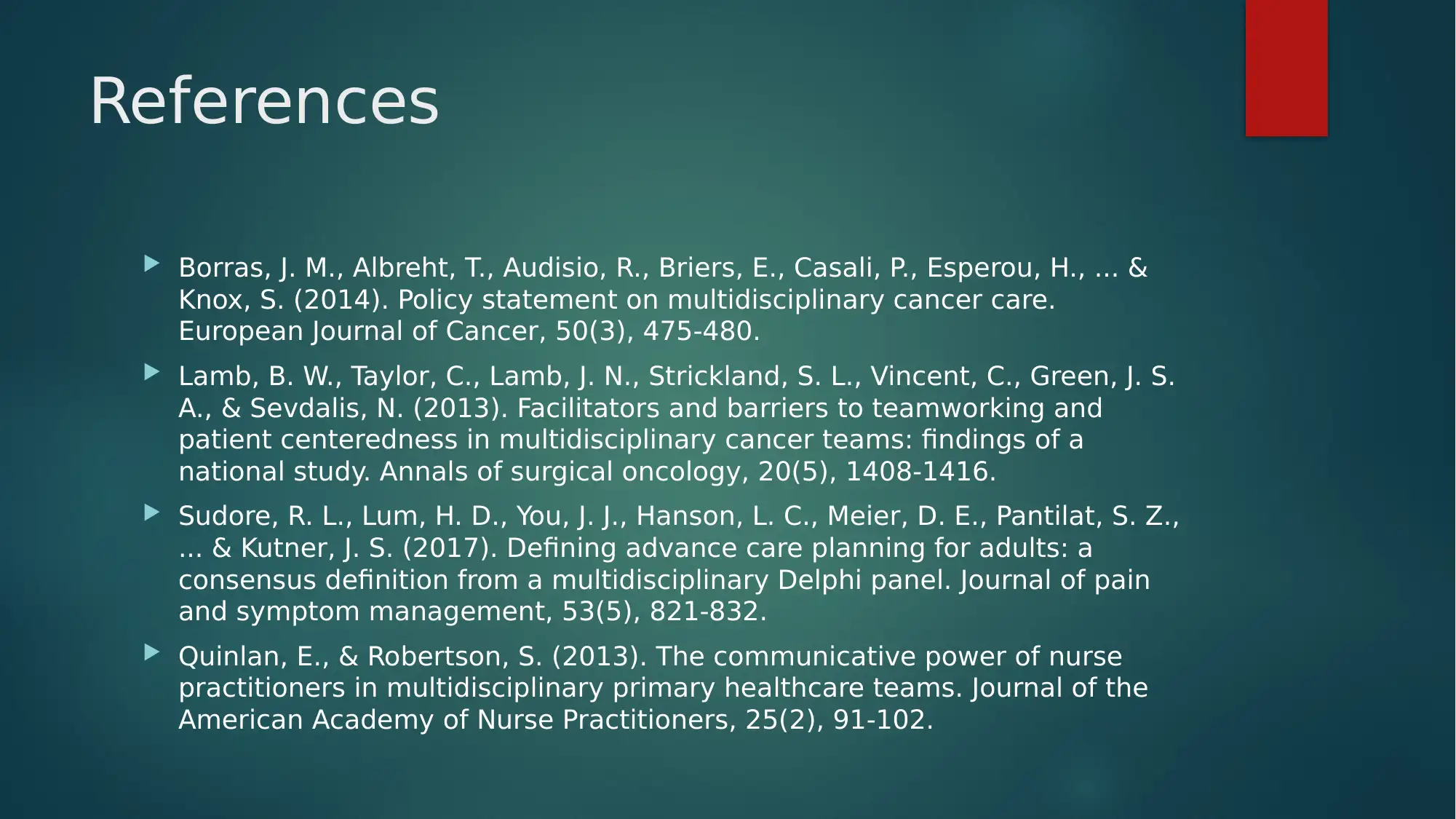






![[object Object]](/_next/static/media/star-bottom.7253800d.svg)